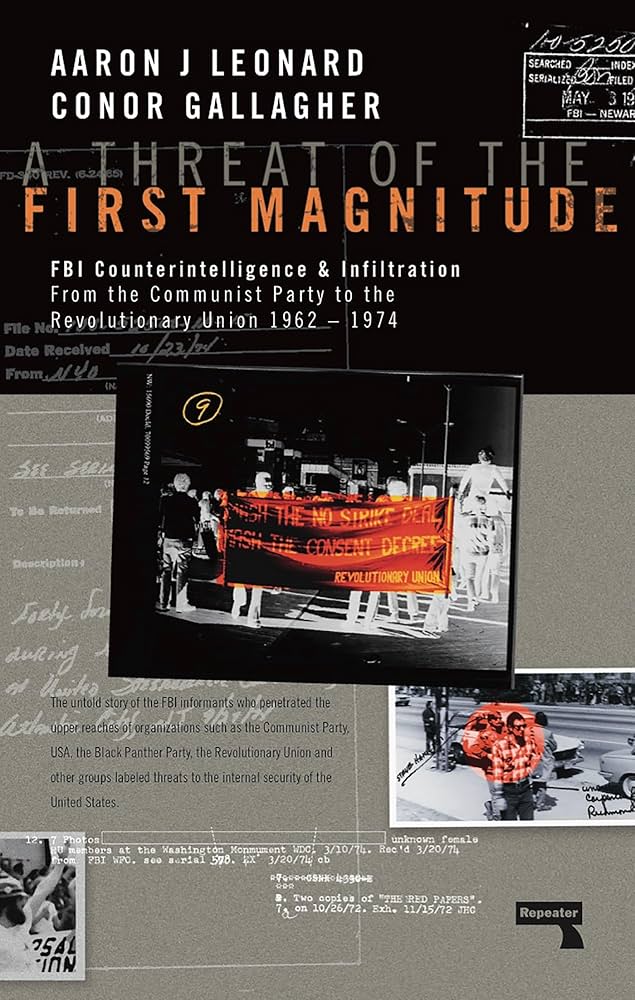Micah Uetricht: This book is a follow-up to another book that you wrote, Heavy Radicals, and both of them are about the FBI’s “secret war” on American radicals. Remind us what the FBI’s relationship to radicals in the United States has historically been.
Aaron J. Leonard: The FBI serves the role of the secret police in the United States. It has some peculiar features. They are charged with maintaining internal security, ferreting out foreign spies, along with organized crime and things like that.
But really the history of the FBI in the twentieth century has been largely a battle with communism. J. Edgar Hoover cut his teeth in the twenties during the first red scare. Into the thirties and forties, the Communist Party became a big force and the FBI was the big counter. Then into the upsurge of the sixties with the New Left and then the Maoist and pro-Castroist New Communist Movement, it was the FBI that was on the job along with local police intelligence departments.
Micah Uetricht: The FBI project that most are familiar with is Cointelpro. But this book isn’t about the kinds of actions we usually associate with Cointelpro.
Aaron J. Leonard: Our book is actually about two things: informants that have elevated themselves to the very top of radical organizations, and about counterintelligence. The FBI invoked that term as a proactive way to undermine forces, to destroy and neutralize those organizations. The big example of Cointelpro from our book is the Ad Hoc Committee for a Scientific Socialist Line, later called the Ad Hoc Committee for a Marxist-Leninist Party.
What most people know about counterintelligence is this program that was developed in the mid to late sixties, which targeted groups like the Black Panther Party, the Puerto Rican Independence Movement, the New Left and other forces. It involved a lot of dirty tricks and it’s really creepy stuff. There’s the famous example of sending a phony letter to Martin Luther King encouraging him to kill himself.
It’s appalling stuff but it’s a very small fraction of what the FBI actually does.
We set out to give people a better picture what this counterintelligence stuff is. We got all these documents after writing our first book, which was focused more specifically on the largest Maoist group in the United States, the Revolutionary Union. The second book [came from] looking at these documents.
What we saw was that these informants had gotten to the very top of leftist organizations.
